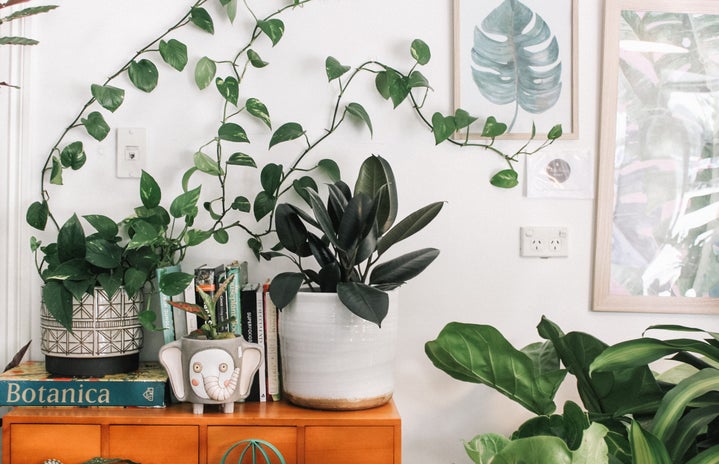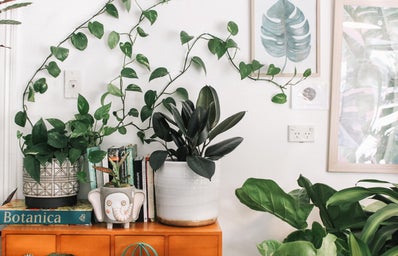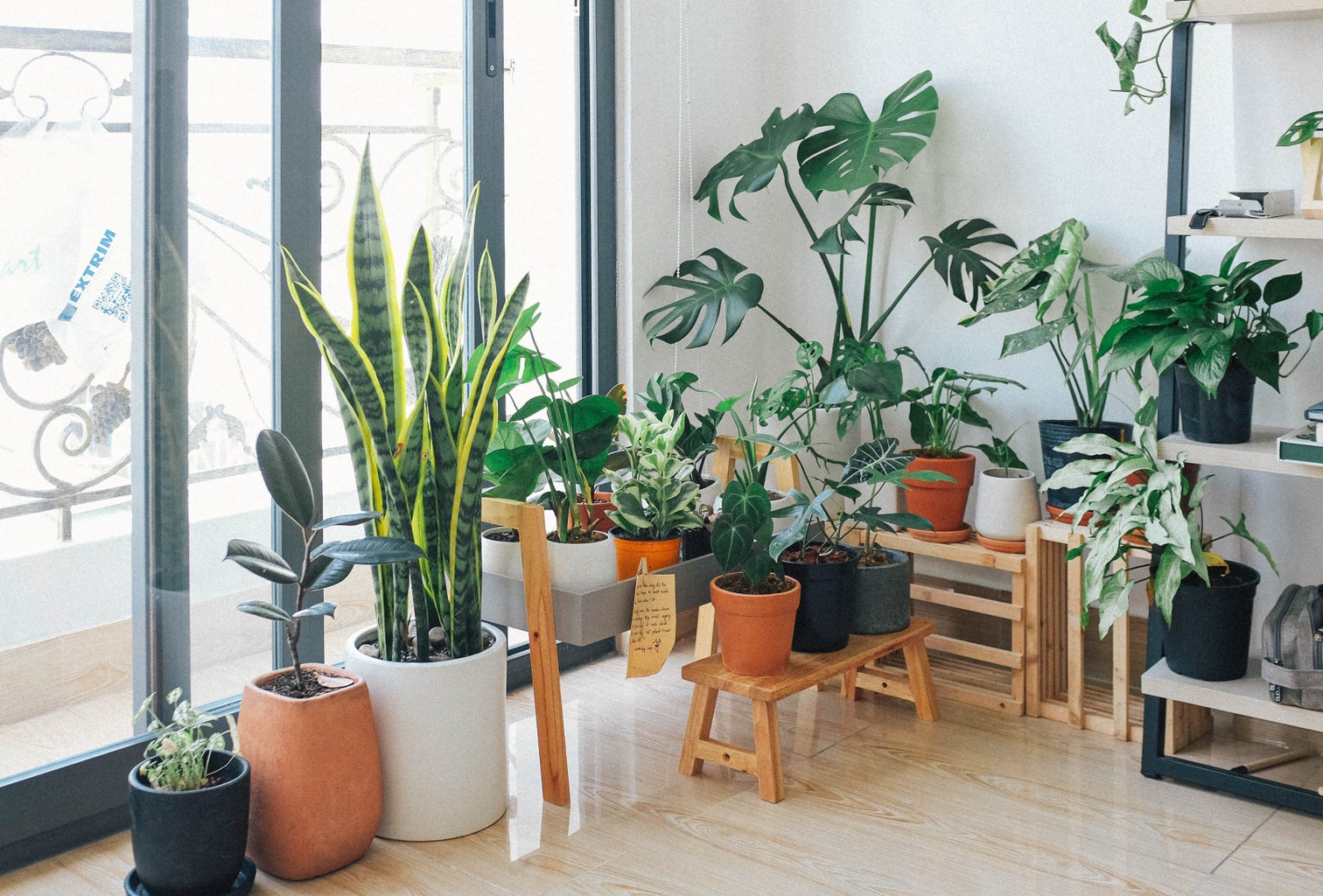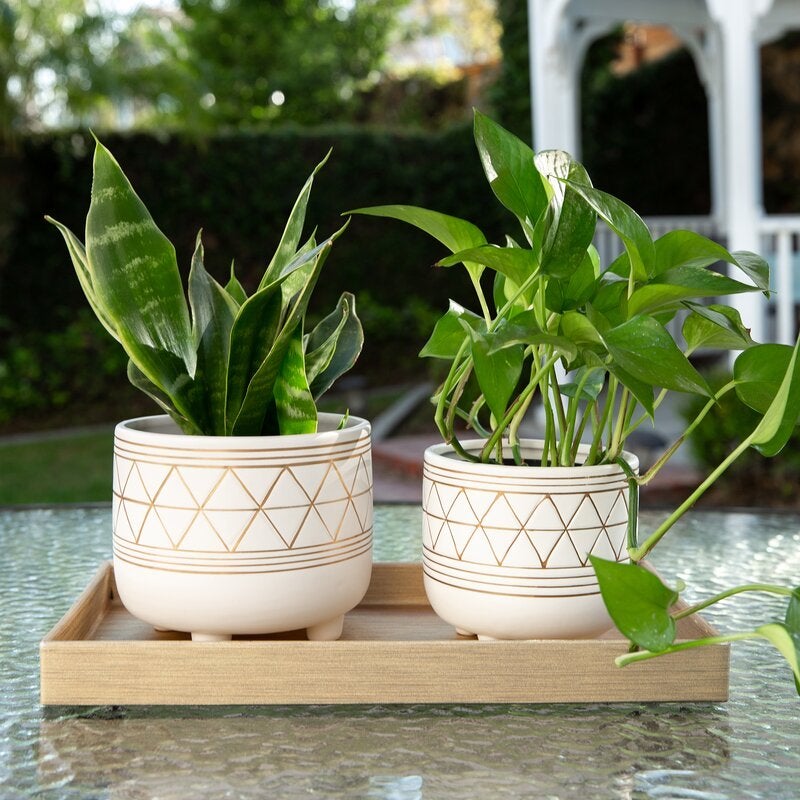When it comes to living in a dorm room, the perfect plant-filled Pinterest room can seem vastly unattainable. However, having indoor plants in your space has many benefits to wellness and elevating your mood.
Our bond with plants is so deep that according to studies, less than 20 minutes is all it takes for us to feel more at peace. In another study, those who spent 15 minutes in a room with a tall plant felt calmer and happier than people who spent the same time with other objects. This is because getting in touch with nature improves our well-being. Scientific field studies have demonstrated that adding indoor plants to offices boosted staff well-being, increased productivity, and decreased sick leave. There are several ways that houseplants might enhance indoor air quality. As plants absorb carbon dioxide through photosynthesis and emit oxygen, they also produce water vapor through transpiration and evapotranspiration, which raises relative humidity.
If you’re anything like me — living in a dorm room with sparse beams of light — plants are a great way to brighten a room. However, plants still need light to flourish. For dorm rooms with limited light, succulents like aloe are a good option because they prefer indirect light. Another plant to use in a dorm space is a spider plant. Spider plants like to be grown in the shade and favor lightly moist, but not soggy soil. One of my favorite plants I have is my golden pothos because of the trailing vine that adds brightness and color to my room. While pothos like bright, indirect light, they can also thrive in low-light environments and likes to have their soil dried out in between waterings. Lately, monstera plants are perfect for dorm rooms that grow well in indirect sunlight and only need to be watered every 1-2 weeks. This plant is also generally pest-free.
While it is important to find pest-free plants to bring to take, spider mites are a challenge I encountered the first week I brought my plants to college. Spider mites are microscopic spiders that attack plants and lay eggs on the leaves, which ultimately cause the plant to die. These bugs are not dangerous to humans, but they can spread to healthy plants near an infested one so it is crucial to take action fast. While spider mites can be stubborn to get rid of, I found a method that worked for me. First, I individually rubbed each leaf with a Q-Tip soaked in rubbing alcohol. Next, I used neem oil and covered all parts of the plants. Neem oil does not kill bugs immediately because they only die after eating the oil so this is also a good preventive measure to take if you have a healthy plant. If this method does not work, a 1:2 ratio of dish soap to water is another option.
If livening up a dorm room is not convincing enough to buy plants, there are many other benefits to owning them!
Can’t get enough of HC UMass Amherst? Be sure to follow us on Instagram, listen to us on Spotify, like us on Facebook, and read our latest Tweets!




